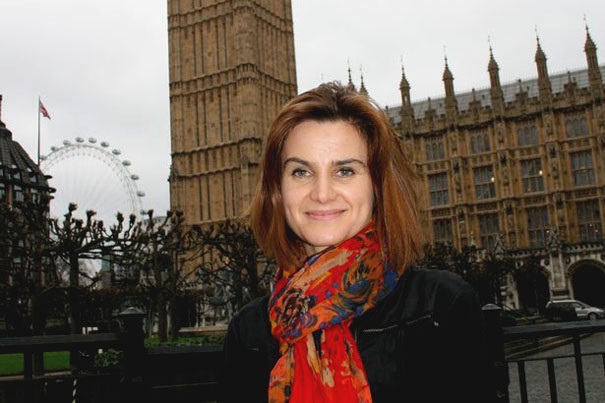
I won’t ask how your year was: unless you are Nigel Farage, Donald Trump, Vladimir Putin, or the Grim Reaper, you’ll likely agree that 2016 has been a motorway pile up of a year: what’s worse, this is only the beginning. Brexit is still only in the phoney war stage, and Donald Trump is yet to be sworn in as president. If you thought 2016 was fun, you’re going to love 2017.
We were jolted awake in January 2016 by the news that David Bowie had died – the first in a parade of artistic heroes lost to the world. Writing for Little Atoms, Samira Ahmed took note of the list of favourite books that had been published on Bowie’s Facebook page a few years before: in particular, Keith Waterhouse’s Billy Liar and John Braine’s Room At The Top – stories about “northern working class boys in the 50s who dream of making it big and finding themselves trapped by provincial attitudes in provincials towns.”
Bowie was himself a suburban dreamer, but, as Ahmed noted, he followed through: the young Bowie, unlike Waterhouse and Braine’s heroes, kept his eye firmly on the prize. In the age of the pop impresario scouring London for bright young things to mould and manipulate, “Bowie was commuting into Carnaby Street in his long-haired uniform to get spotted, with the same diligence as a would be banker heading for the City. He turns up in incarnation after incarnation of pre-moptop pop band, a teen magazine fashion shoots, an ad for ice cream and posing as a yoof spokesman on a BBC current affairs programmes.”
In April, Caroline Christie mourned the passing of Prince, whose series of live shows across London had electrified the city in 2014. Explaining why she had queued 13 hours in the rain in the hope of seeing Prince play at London jazz venue Ronnie Scott’s Christie noted that “Even in later life, when he turned his back on his flirty lyrics and banned all cursing from his gigs, Prince still hinted at that that sense of fun, sex and glamour that made his work so infectious.”
Later in the year, musician Frank Turner wrote of his discovery of Leonard Cohen, who died at the age of 82. Turner had only come to Cohen is his mid-20s, which seems appropriate when one considers that Cohen only started writing songs in his 30s: in spite of the millions of teen troubadours who’ll belt out Marianne at the drop of a hat, Cohen’s lyrics and themes are distinctly adult. As Turner wrote in a moving, personal piece, “His vision of human frailty, imperfection, and the struggle to live meaningfully and morally in a fallen world, cut right to the core of your being.”
Bowie, Cohen and Prince represented something for many Little Atoms readers and writers: curiosity, intelligence, wit, and the intangible genius that makes one think humans might work out OK in the end.
A lesser noted death this year was that of Benjamin Creme, a nonagenarian new age guru who had been predicting the imminent arrival of the saviour of the world – the Maitreya – since the 1980s. Creme’s beliefs, and those of his followers, were a fascinating mix of theosophy, spiritualism and science fiction, tied up in nuclear age fears of Armageddon. Put simply, an interplanetary parliament of super beings is on hand to save the world from nuclear war, and will reveal themselves soon. The Maitreya, who will save the Earth, was supposed at various points to appear in east London and Nairobi, but could not be pinned down. Eventually though, he will turn up on all TV stations simultaneously, and then we shall have peace.
It would be easy to laugh at this, but Scott Wood instead wrote a sensitive, fascinating account of the origins of Creme’s beliefs and the false dawns his movement experienced. As with so many of these movements, there was a certain sadness at its core. At worst (for me at least) it represented a slightly off-the-wall response to real fears of atomic annihilation. In our increasingly volatile world, new religious movements and sects will prosper.
That volatility was brought home to Britain shockingly in June, when young Labour MP Jo Cox was murdered in the street by a neo-Nazi, just days before the Brexit referendum.
Cox, who co-founded the All Party Parliamentary Group Friends of Syria with Andrew Mitchell, was an internationalist voice in an increasingly isolationist political field, who understood that inaction in Syria would have consequences at home, not least in the increasing xenophobia which has grown out of the refugee crisis. In a previously unpublished, wide-ranging interview with Adam Barnett, Cox lambasted the west’s continued inability to confront the Assad regime’s brutality.
At a London meeting in November, Raed Saleh of the Syrian White Helmets group said that Cox had been a victim of terrorism just as so many Syrians have been.
As 2016 draws to a close, with the prospect of a 2017 where Putin and Trump rule the world, the loss of a voice such as Cox’s will be felt all the more sharply.